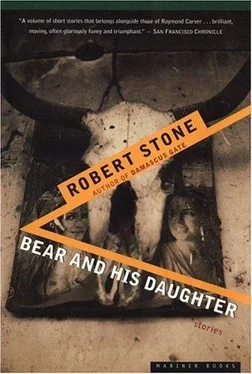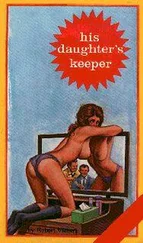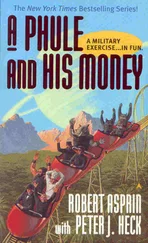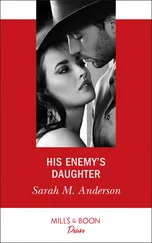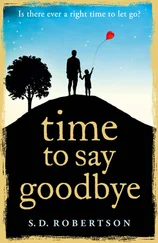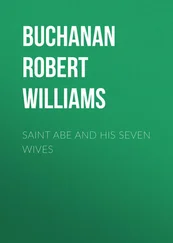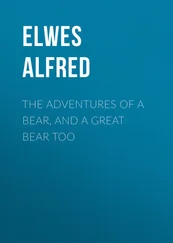And swoop of eagles,
Are creatures of time’s wheel.
“I bet they got trout,” the bartender said. “They always do. But I can’t like give you trout out here. You gotta go to the dining room. You see where the maitre d’ is standing?”
Smart, disoriented for a moment, looked toward a man in a dinner jacket far across the room. Now it all had to be paid for, he thought, every worthwhile moment, every line, good, bad, mediocre. And of all the poems, why had he to lose that one?
“Under the pale ultra-planetary sky of the white night,” it had gone on, more or less:
I feel for them such love
And, for their cold struggle, such admiration
In my overheated heart.
Smart rose from his stool, dizzy with the Scotch and the altitude.
“You OK, señor?” asked the bartender.
He fixed the youth with a glittering eye, tossed a few singles on the bar and strolled out to the casino. On the way, he passed the young cocktail waitress.
“You got nice eyes,” she told him.
He felt so pleased he could only smile. A man had to keep settling for less. Patronizing compliments. You became a few scattered lines of your own poem.
What wisdom could be bound in a fish eye?
It must be an illusion.
For how could fish, these fish, under their long-lost ale-colored sky,
In the strange light, coming home, coming back after all these years,
Have something in their cold old eyes I need
Or think I need?
A magical experience it had been, that night, all poetry and light!
The casino had an Old West theme, with wagon-wheel chandeliers and fake Navajo rugs and buffalo skulls and elkhorn racks fixed to the log walls. It was a quiet weekday night on the lake and the action was slow. Half a dozen blackjack games were under way, dealt by fair young women with cavalier curls and sleeve garters. Three roulette wheels stood motionless beneath transparent plastic covers. At the craps table, two silent men, a pit boss and a stick man, stood side by side like mourners. Smart, who had carried his drink from the bar leaned against a polished pine stanchion to watch them.
The house uniform was country-and-western. The pit boss was a pale, yellowing man in a two-tone beige and tan jacket and a bolo tie with a turquoise ornament. The stick man wore a red bandanna knotted below his Adam’s apple. He was bald and red-faced. There were shiny scars on the taut skin over his cheekbones. Smart decided to play.
He was midway through a six-college tour of the mountain states, his first reading series in three years. For each reading, Smart was being paid two thousand dollars. He hitched up his chino trousers and advanced to the table.
“Right,” he declared. “A wager here.”
The men turned serpent gazes on him.
“Did you want to play, friend?” the stick man asked.
“Please,” said Smart. “Five-dollar chips.”
“Friend will play,” sang the stick man in a grifter’s croon. He pushed the big red dice toward Smart. Smart spread ten chips along the Pass line, took up the dice, shook them and rolled.
“Come-out roll,” the stick man intoned. The voice conveyed to Smart the romance of his own youth — carnivals, the society of car thieves and hustlers, the street.
“A seven-ah,” the man declared, for Smart had rolled four and tray. He pushed Smart’s winnings along the green baize. Smart rolled again. The dice read double fives.
“Ten the point,” declared the stick man. “Ten the hard way.”
On the very next roll Smart threw another ten. The stick man paid out his chips. Smart left his winnings in place and rolled eleven.
“An ee-leven,” the stick man called. Smart gave the man a humorous glance, as though his good fortune were somehow being appreciated. The man’s dead eyes offered neither help nor hope and not a grain of congratulation.
A pretty girl in a leotard, a different girl this time and not the one who admired his eyes, asked Smart if he would like a drink. She was olive-skinned but pale, with an unhappy smile. Drugs, he suspected.
“Oh,” said the poet, “double Scotch, I think.”
And about halfway through the next anemic double Scotch, a drink for which Smart could conceive scant respect, things started to go wrong. Looking at the table, he found he could not calculate the amount of money represented by the chips there. The stick man had changed some of his five-dollar chips to twenty-fives, yellow chips with metal centers. Uncertainly he drew back some of the chips and let some ride. He rolled boxcars, then a seven, and lost.
For a moment he hesitated. Sensing the house men’s impatience, entirely to please them, he spread the rest of his cash along the Pass line. Then he rolled and won again. Adrenaline made his heart swell but the exhilaration cast a queer shadow. Other players arrived, nasal tourists, men in baseball caps, owlish women, betting against him. He became more and more confused. There was some kind of quarrel. The pit boss called for Security. There was such violence, such hatred in the boss’s voice that Smart was briefly terrified. A woman laughed.
Suddenly he was being lifted off his feet. An enormous Chicano security guard in a tan uniform had gripped his arm. Smart was a large man but the guard was larger.
“Just a second,” Smart said. “Just a minute.” He had no choice but to move in the direction the guard impelled him. Otherwise, Smart felt, he would fall and be at the mercy of the whirling angry room. Looking up at the man holding him, Smart could focus on his face. It was brown and handsome, without expression.
“That’s hard on the arm,” he said, trying to laugh it off, sputtering too wetly. And then he saw that there was a second guard, a young woman with straight blond hair who was saying, “Are you not all right, sir? Because if you’re not all right, sir; we’ll have to put you in custody of the police and they can see you get whatever attention you might require, if you feel you require attention. That would just be a matter of your own protection, if you required custody. Do you think you require custody, sir? For your own protection?”
“All right,” Smart said.
Then they were on the steps of the casino, at the edge of the parking lot beside the highway. The big Mexican stood by while the blond woman guard recited.
“Now sir; the hotel and lounge and casino and the restaurant and the grounds are private property and you may not enter them without permission and you do not have that permission now. And you are barred from those places at any time. And you are very close — this close, sir — to violating our laws and you will go to jail if we have to engage you personally again. So are you hearing me, sir?”
As Smart made his way toward his car; he turned and saw her, half in the shadow of her giant companion, talking into a hand radio.
“My daughter;” he told the two guards, “is a park ranger. I’m on my way to see her.”
The big Mexican guard advanced on him.
“How’s that? How’s that, buddy? You got a problem?”
“No, no,” Smart implored. “No problem whatsoever.”
He breathed with difficulty. A few years before he had suffered a breakdown and been involved in an accident. Now his arm was completely numb where the guard had grabbed it. Its throbbing kept time with the beating in his chest.
He climbed into his car and waited for the pair of them to go back inside. The worst of it, he thought, was their rage at him. As though everyone had been waiting for him to make the slightest wrong move. He started his engine, shifted into gear and, without turning on his headlights, guided the car to the part of the parking lot that was farthest from the highway. Beside the lot, beyond a log fence, began the stand of fir trees that marked the edge of woods that bordered the lake. Turning off the ignition was the last thing he remembered.
Читать дальше
